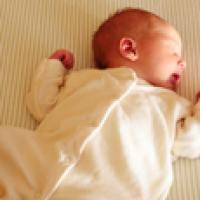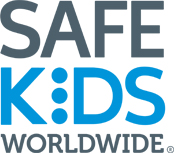Three Surprising Facts about Safe Sleep

Every new parent has been faced with those sleepless nights resulting in gritty eyes and pounding headaches the next morning. Finding the perfect way to get your baby to sleep through the night is just part of the journey. We know it’s tempting for some parents to take their babies to sleep in their own beds or put blankets or toys in a crib to make it seem like a cozier place. But looking at the evidence, we know that there are safer ways to bond or to help your baby fall asleep.
American Baby and Safe Kids Worldwide surveyed more than 4,500 moms with babies age 1 and younger to find out what parents are thinking and perhaps, more important, what they’re doing when it comes to helping their babies fall asleep at night.
Here are three facts that came out of the survey that might surprise you.
- Fact: 65 percent of moms in the survey said they’ve slept in bed with their baby, and 38 percent do so regularly. Previous research has shown that half of suffocation deaths in infants happen in an adult bed.
- Safe Tip: To keep close contact while keeping your babies safe, place cribs or bassinets next to the bed—we know that room-sharing is a great way to protect against Sudden Infant Death Syndrome (SIDS), and it also keeps babies away from comforters, pillows and sleeping people that could potentially block their airway while they sleep.
- Fact: 73 percent of moms said they put items like blankets, bumpers and stuffed animals in the crib with baby—all suffocation dangers for babies.
- Safe Tip: Use a firm mattress and a tight-fitting crib sheet, and don’t feel that anything else needs to be in the crib. If you’re worried about your babies getting cold, try using a sleepsack which keeps them warm without adding lots of extra fabric.
- Fact: 28 percent of moms said in the survey that they put their baby to sleep on their stomach. This is especially alarming given that experts have known for years that stomach-sleeping raises the risk of SIDS.
- Safe Tip: Put your babies on their backs for every sleep. Some parents worry that their babies might choke on spit-up if they sleep on their backs; according to the American Academy of Pediatrics, back-sleeping doesn’t increase the risk of this happening because babies have protective airway mechanisms.
More Information
Check out more safe sleep strategies, and be sure to read the complete article in American Baby’s newest issue to learn more about what parents are doing from the new survey.
